And there it was, up those stairs, at the end of a tiled corridor, and behind a closed door. The place where you’ll find one of South Africa’s most innovative and exciting chefs, Wandile Mabaso, making magic.
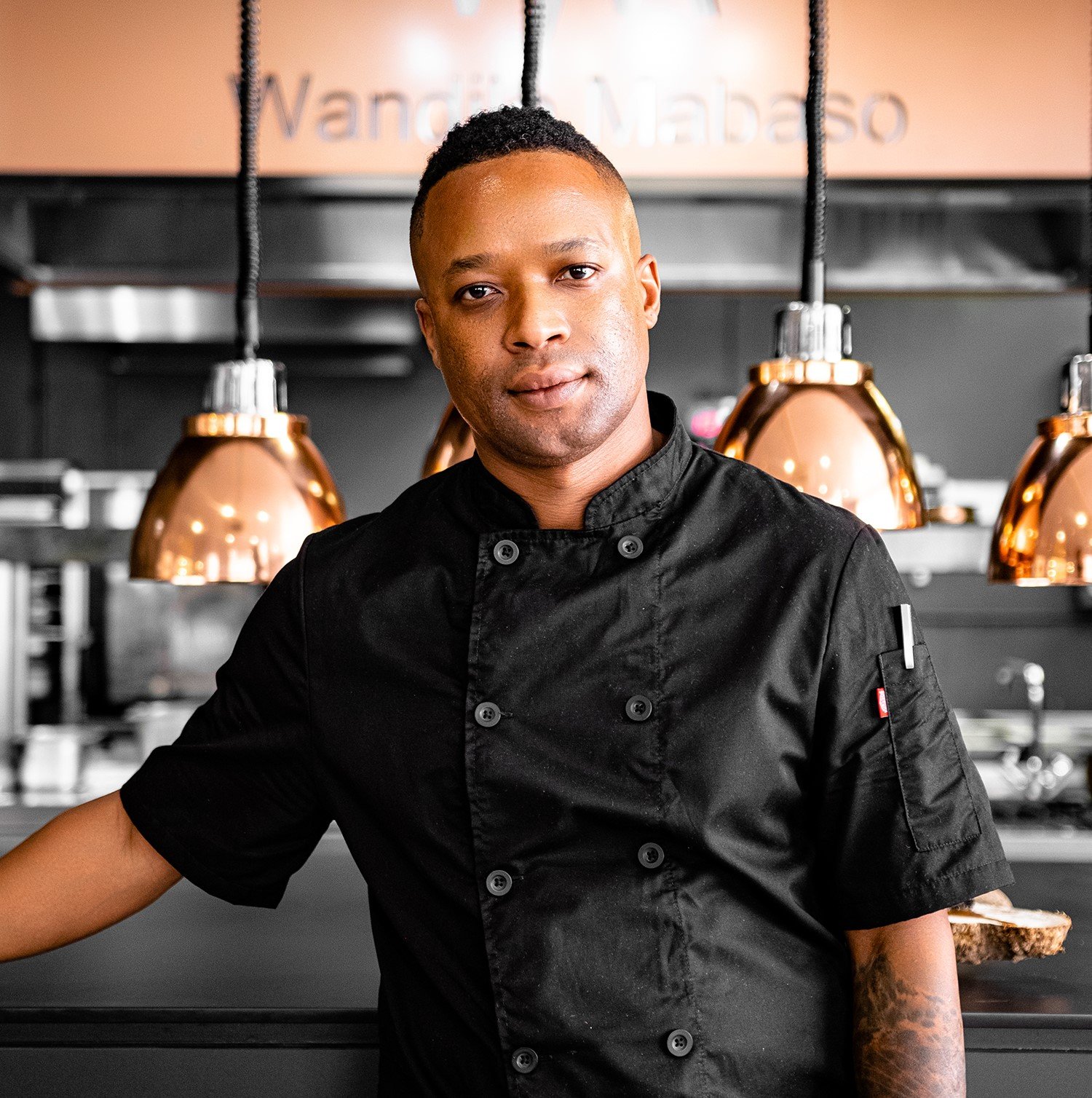
Les Créatifs is not so much a fine-dining restaurant as it is a creative institution. It’s a training ground for young talent; a hub of gifted creatives burgeoning with ideas under the expert guidance of Chef Mabaso.
If you don’t know Mabaso, he’s a self-proclaimed ‘food artist’ whose experience includes working under Michelin-star chef Olivier Reginensi as Executive Sous Chef for the French restaurant group Maison Kayser. He also trained in New York, specialising in contemporary French haute cuisine at Alain Ducasse’s two Michelin-starred restaurants, and was part of the team that won two Michelin stars at Le Meurice Alain Ducasse in Paris in 2016. Let’s just say he’s been around the block.
He opened Les Créatifs soon after returning to South Africa in 2019.
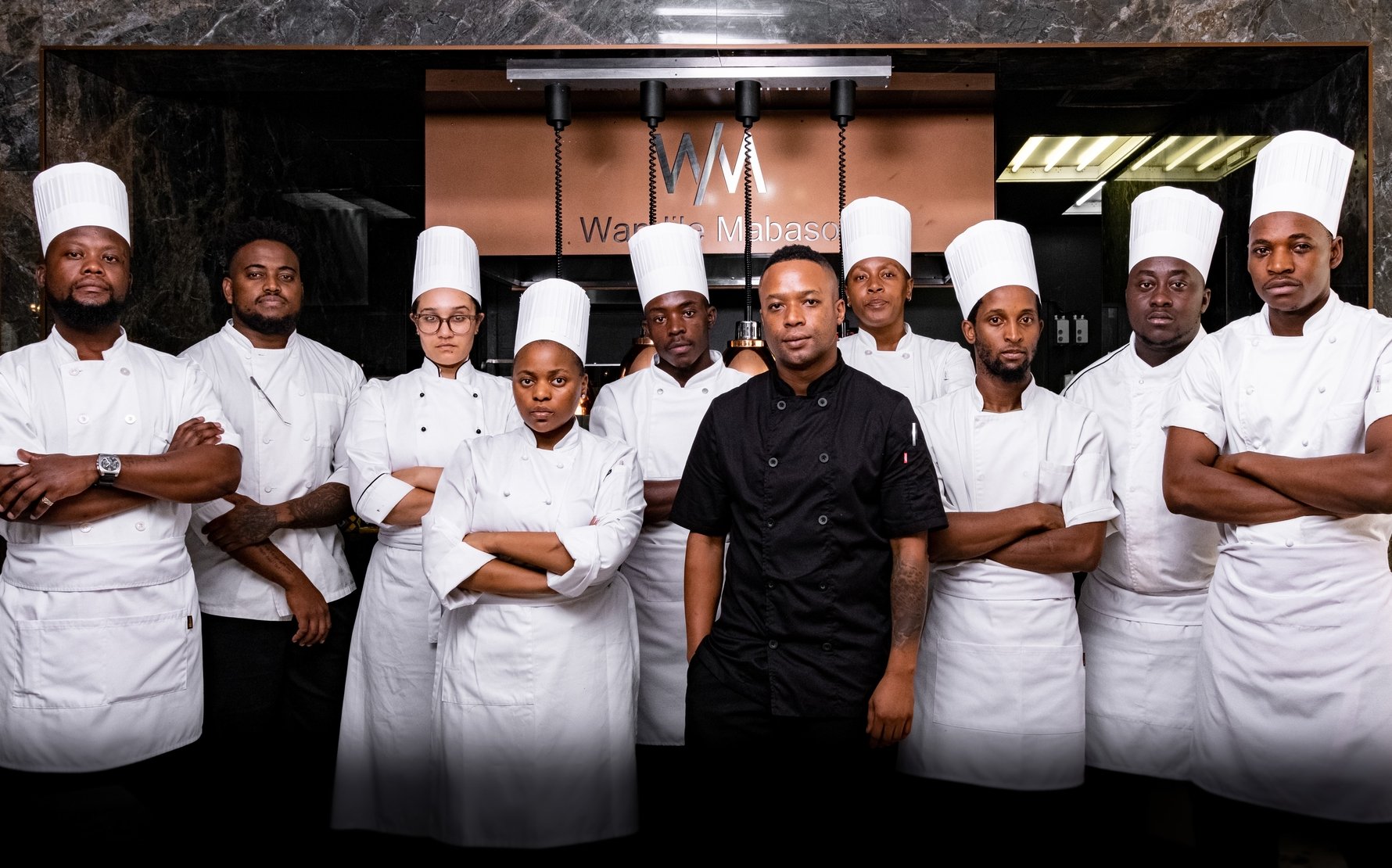
Mabaso has a sizeable kitchen army – the majority of whom started out in the trenches as dishwashers and scullers. A few have arrived directly out of chef school and another two are young students being trained for international competitions. All are of colour – which Mabaso explains is simply representative of the applications he receives to train under him. He hopes this will change. His patrons on the other hand couldn’t be more diverse. He smiles as he recalls the restaurant's recent Valentine’s dinner which was booked up six months in advance. He says he lifted his head from overseeing the plating to see a room filled with the sounds of Afrikaans, and on the evening before our visit he hosted tables that represented just about every demographic.
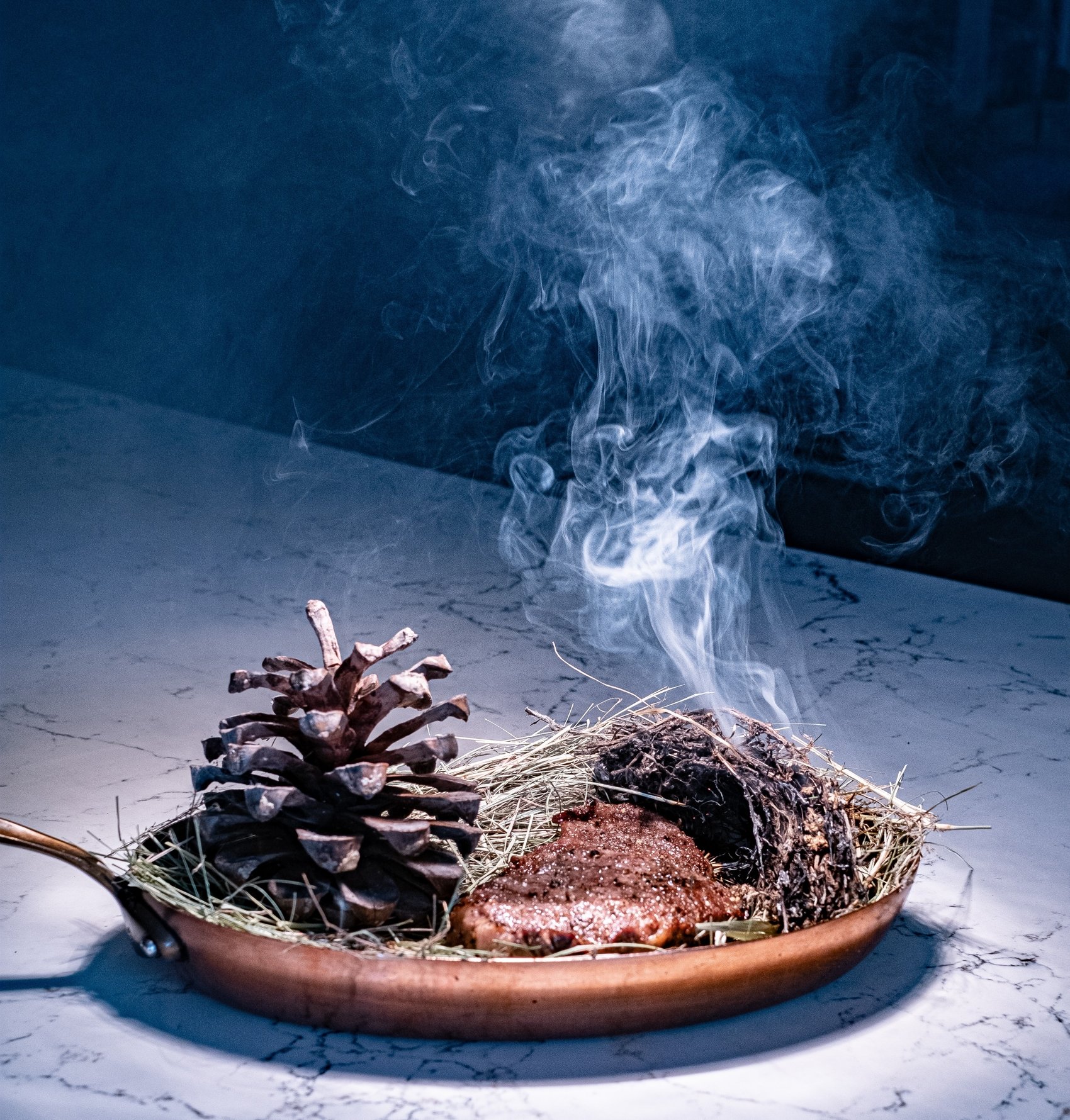
Mabaso, who grew up in Soweto, is passionate about telling authentic African stories. You’ll see this thread run through every element of the experience, from the locally sourced, indigenous ingredients which include langoustines direct from a fisherman in Maputo and beef tongue from a farmer in Krugersdorp, to the furnishings, curated artworks and an eclectic selection of locally crafted crockery.
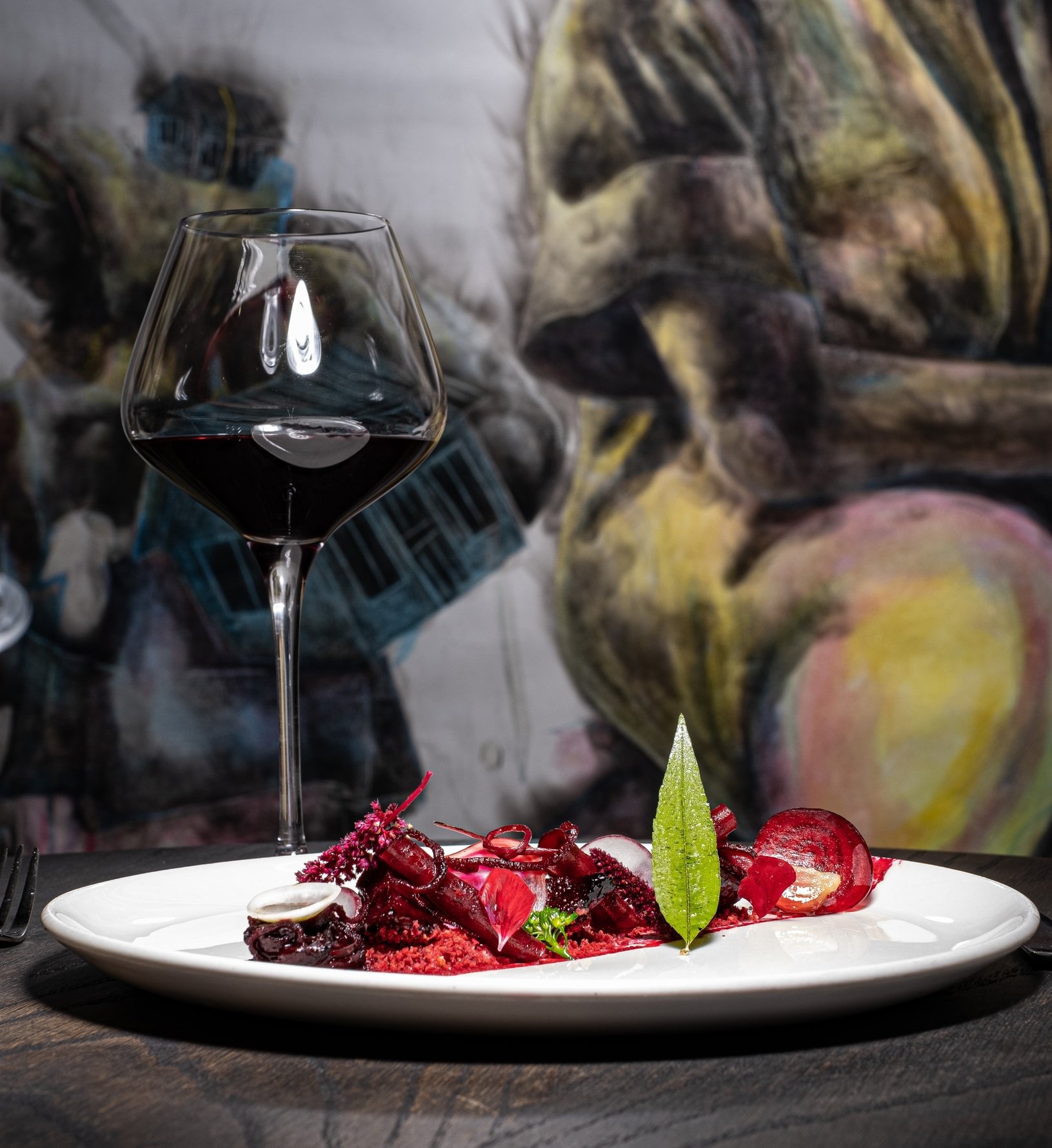
Then there’s the meticulous curation of the artwork in his restaurant. On the day we visited, Banele Khoza's latest portraits hung before our table, while Fhatuwani Mukheli artworks graced the bar. Mabaso is vehement about showcasing emerging artists from around the city. These works are all for sale with new works selected monthly. To date he’s sold over five-million-rand worth of art, a side of the business that kept them afloat during lockdown. The restaurant takes only 20% commission as opposed to the 50% often taken by most galleries.
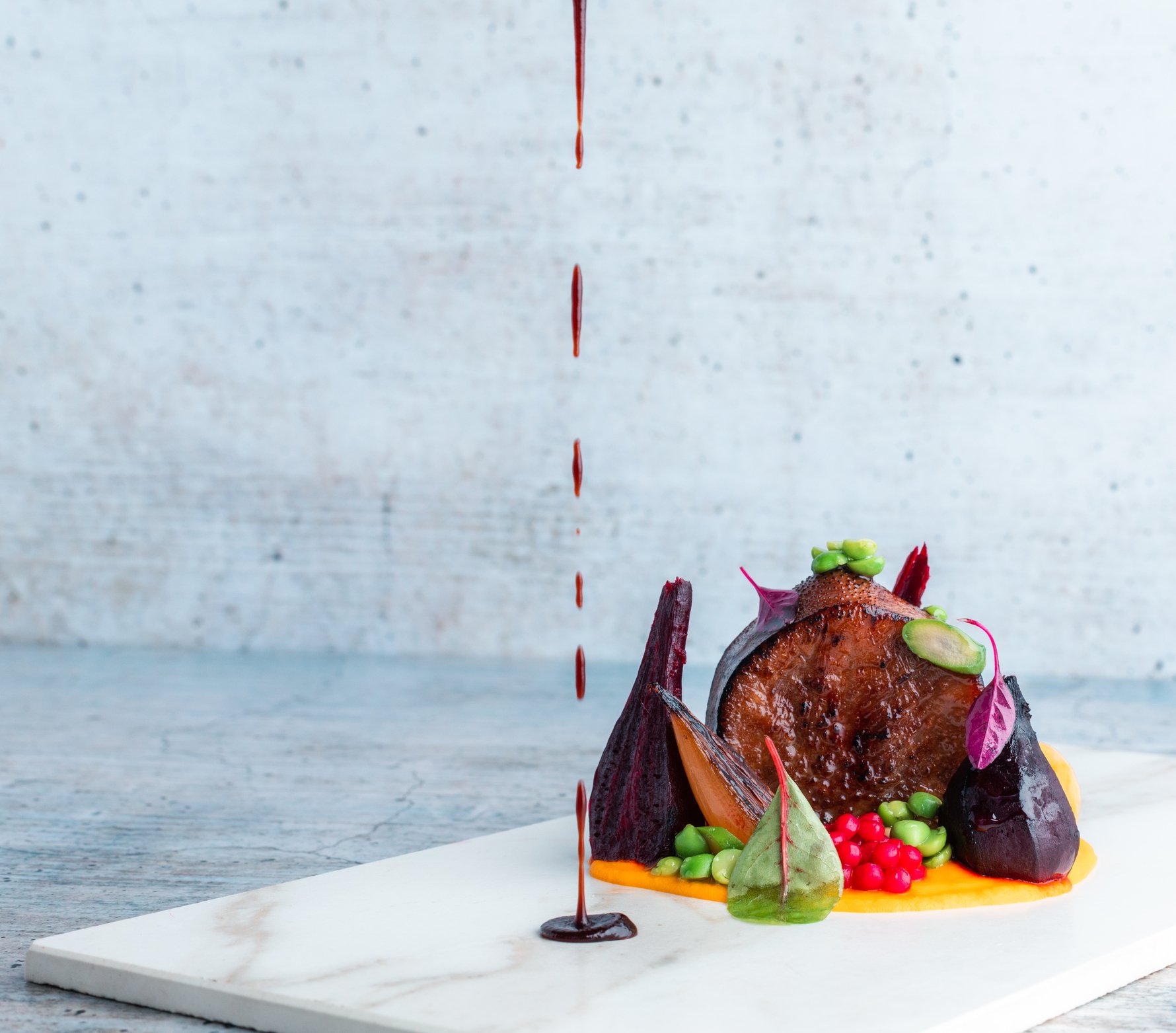
Mabaso’s process in the kitchen is similar to that of an artist. He and his team continue to develop each dish on the menu over time so that it’s in a constant state of metamorphosis. Once they’ve perfected it, they take it off the menu, and start all over again.
Mabaso calls his cuisine ‘Afrique moderne’, or modernised African cuisine, celebrating traditional African ingredients and flavours with finesse. His take really is unique, and we don’t use that word lightly. Mabaso explains that as a child he always knew he wanted to be different. The only thing that he asks of patrons is that they come open-minded.
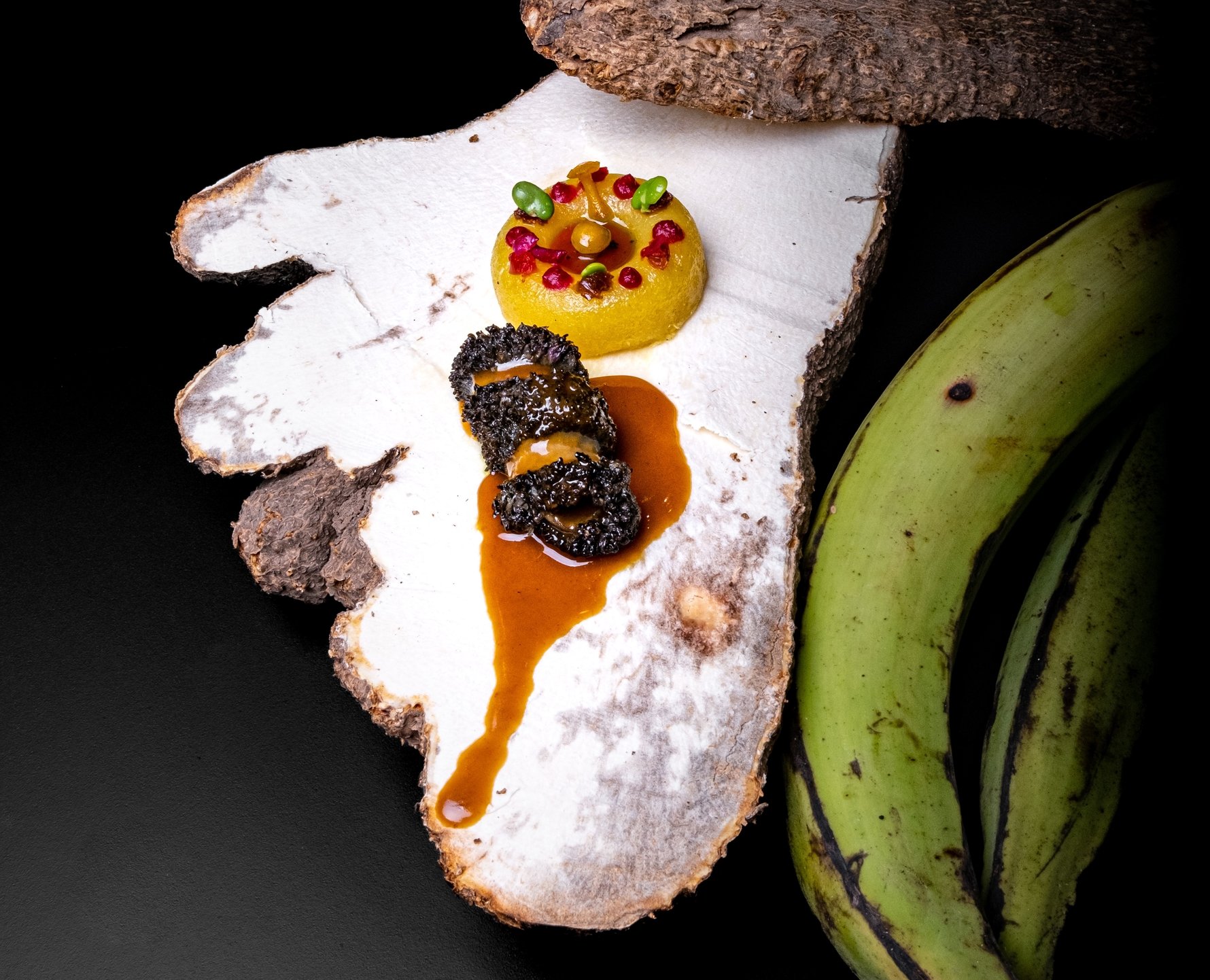
His food is rich and layered with remarkable complexity of flavours that reveal themselves gradually within each bite. The textures excite, the colours delight, and every mouthful is a sensory carnival. Think Krugersdorp beef tongue with ox liver, marrow, a chakalaka potato, melon atchar and impepho-smoked tripe jus. Each dish imbued with story, a richness of ingredients and flavour, and the gift of time and care that it’s taken to put together. There’s something quite spiritual about his food, in the consideration that every element is given. His food demands your attention, and it is a delight to give it.
You NEED to visit this restaurant, and you must book in advance. They’re full most nights so it’s not about needing support, it’s about deserving it. We need more places like this, where African ingredients, flavour, heritage, art and stories all come together in one space, and are celebrated in a divinely educational and totally pleasurable way.


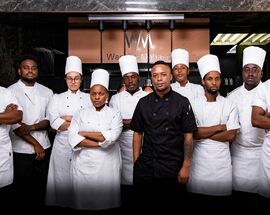
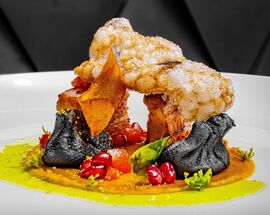
_m.jpg)


Comments